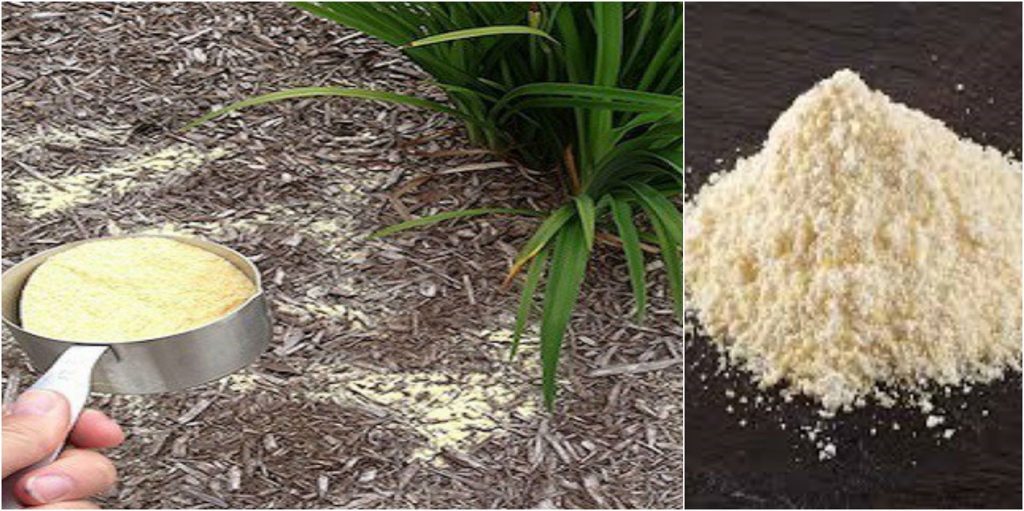
Cornmeal isn’t usually the first thing that comes to mind when thinking of safe and natural ways to care for our gardens. However, applying cornmeal to soils, certain plants and even water can be beneficial in a number of ways. Let’s take a look at how you can put cornmeal to work for you whether you have a small garden in the backyard or you’re creating self-sufficient homestead.
Weed Control
Cornmeal contains compounds that prevent many species of weed seeds from binding with the soil and germinating. However, it’s not as effective when it comes to killing weeds that have already been established. The trick is to apply the cornmeal on soil before weeds produce seeds so they can’t take root in the future. Keep in mind that seeds from weeds can travel great distances, so even if you don’t have any near your garden, seeds can be deposited from sources upwind.
It’s also important to note that you’ll need “gluten cornmeal” as opposed to the stuff we have in our pantries and stockpiles. Unfortunately, the concentration of weed-killing compounds in these products is too low to be effective.
Ant Killer
Regular cornmeal is widely-considered to be a safe and effective way to kill a number of ant species, but the jury is out on exactly why it works so well. The general consensus is that ants are attracted to the scent of cornmeal but their digestive systems can’t process the food. However, it’s important to note that cornmeal alone doesn’t work on all species, and some suggest adding some poison to the bait to ensure chances of success. Whether or not you use poison or add other ingredients to baits, the fact that cornmeal can help to keep ant problems under control makes it a fantastic option to consider experimenting with.
Anti-Fungal, Rejuvination
A lot of people are convinced that gluten cornmeal can be used as a natural fungicide. There are also a lot of reports that cornmeal can help to rejuvenate dying or struggling plants or restore brown patches of grass. There are also a lot of reports that these claims are unfounded, so it’s really anyone’s guess as to whether or not cornmeal can prevent the spread of disease. However, cornmeal does nourish the soil, and there are a number of “cornmeal treatment” recipes out there that are definitely worth trying out.
Algae Control
One thing that almost everyone can agree on is that cornmeal is a great way to control algae in ponds. Cellulose in cornmeal binds with excess phosphorous in the water, and this helps to bring chemicals back into balance and inhibit the growth of algae. However, it’s important to note that too much cornmeal can also reduce oxygen levels in the water, and this can have a harmful effect on fish. As a general rule of thumb, you should start with less than 5lbs of cornmeal per 1000sf of surface area and work your way up from there.
Compost
Finally, consider sprinkling in some cornmeal between layers of compost, and add a little bit more as you stir up the pile. Cornmeal contains a lot of compounds that bacteria and other microbes love to consume, and this can make the process of decomposition more efficient. It can also contribute to the richness of the compost and its effectiveness as you use it in the future.
While some of these options may not be practical or effective in every situation, they illustrate how cornmeal has a number of uses outside of the kitchen or in a feed trough. Take some time to learn more about how you can benefit from having some extra cornmeal on hand. Chances are that you’ll be surprised with what you come across.
